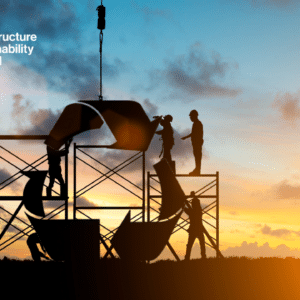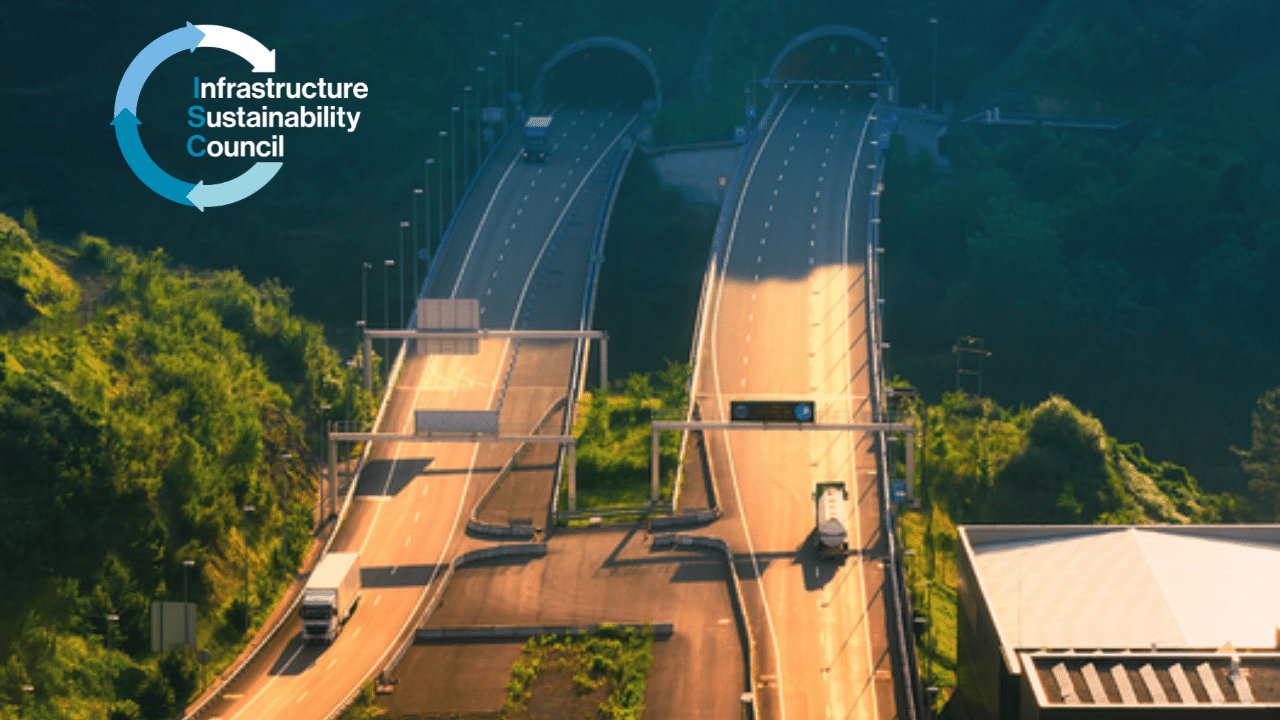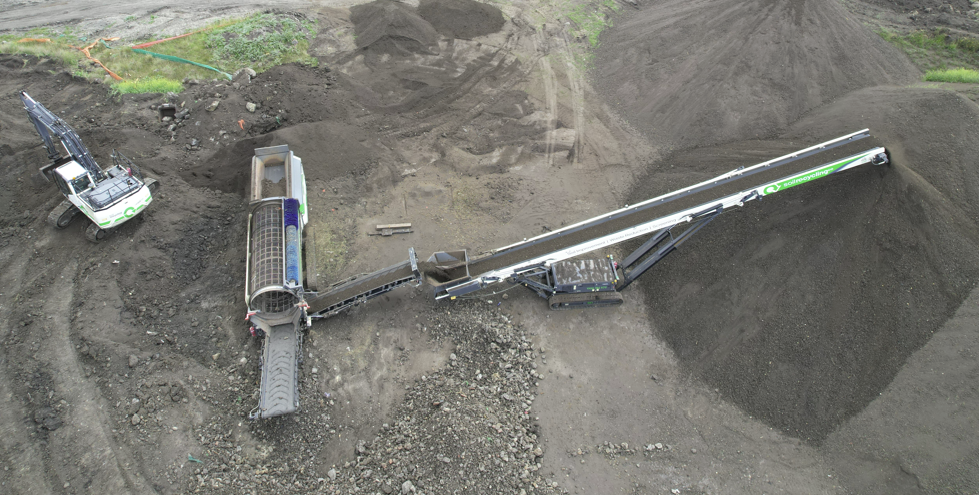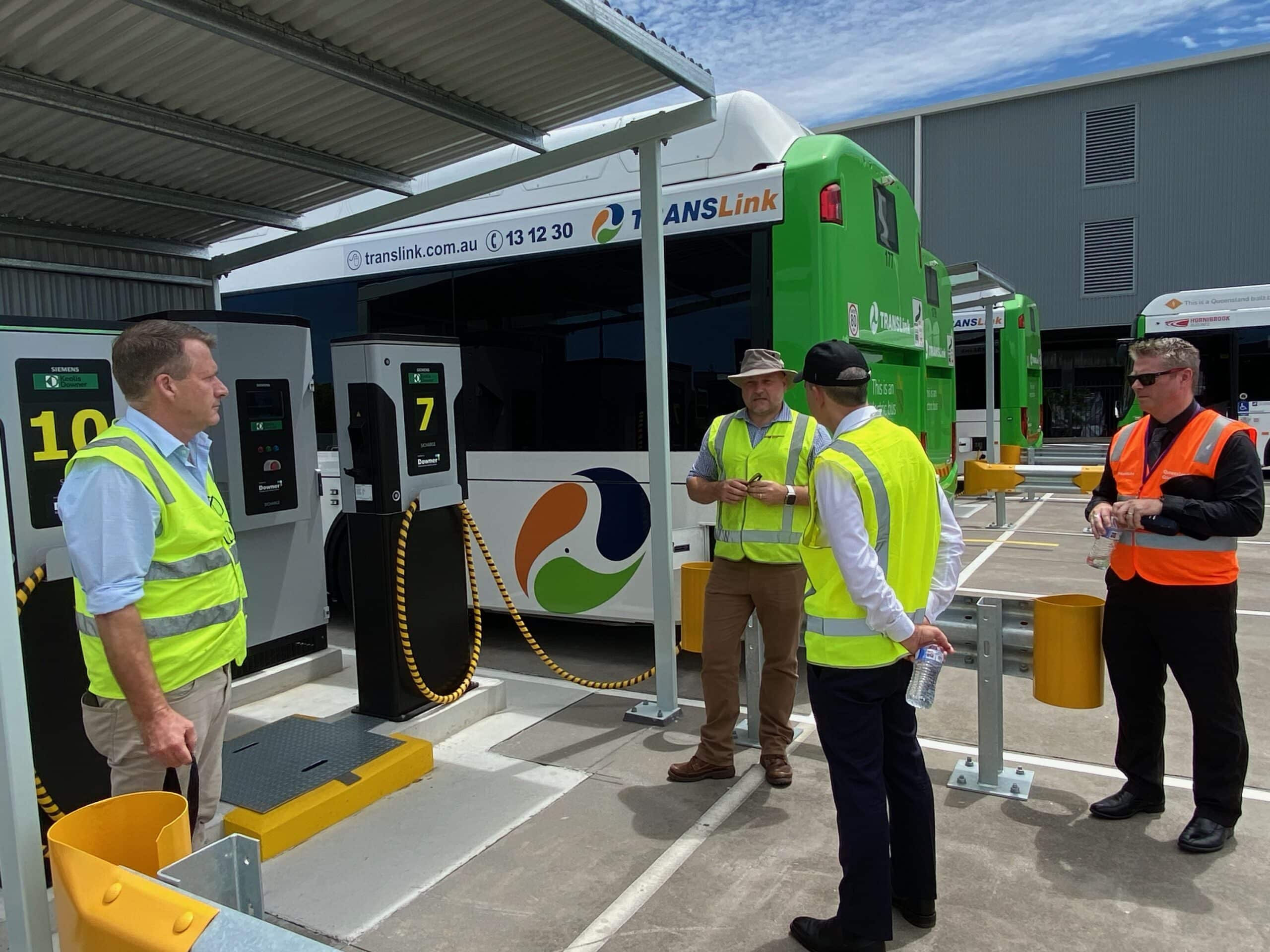Author: Sarina Aguinaldo
What’s On April
Mickleham Rd Project: A Case Study in Sustainability
Client: BMD
Government Partner: Major Roads Project Victoria
Provider: Soil Recycling Co
Background:
In the heart of the commercial landscape industry, a significant challenge has persisted: the inefficiency of handling usable topsoil. Traditional practices saw trucks removing valuable topsoil from sites, only to later import similar material, creating unnecessary carbon emissions and waste.
Soil Recycling Co was established to revolutionise this process,working with the Mickleham Rd project—a key initiative under Major Roads Project Victoria.
The Challenge:
The Mickleham Rd project presented an opportunity to showcase sustainable practices in soil management. The goal was to reduce waste and carbon emissions by recycling topsoil on site, rather than the costly and environmentally harmful practice of transporting soil off and back to the site.
Our Process:
Our journey began with a comprehensive soil assessment conducted by a certified agronomist. This analysis focused on the soil’s texture, structure, and chemistry, providing the foundation for our topsoil amelioration strategy. Our tailored approach involved:
- Screening: To remove debris and large particles, ensuring a uniform soil texture.
- Mixing: To ameliorate the soil, creating a consistent healthy material.
- Aerating: To improve soil structure, enhancing root penetration and water infiltration.
- Enriching: We added compost, fertilisers, and gypsum to boost the soil’s fertility and health.
Achievements on the Mickleham Rd Project:
For the Mickleham Rd project with BMD, we processed 2,090m3 of topsoil, implementing our sustainable soil management practices. This initiative not only made the existing topsoil usable but also aligned with eco-friendly principles.
Environmental Impact:
Our innovative approach significantly reduced CO2 emissions, with an estimated saving of 1 tonne of emissions for every 193 cubic metres of imported topsoil avoided – that’s a total of 10.82 tonnes reduced! Moreover, Soil Recycling Co is dedicated to offsetting our carbon footprint, committing to plant 15 trees for every tonne of emissions generated by our operations through our partnership with Greenfleet Australia.
By reusing onsite topsoil, we’ve helped BMD avoid the unnecessary truck movement & landfill disposal of usable soil, further underscoring the project’s environmental benefits.
Conclusion:
Soil Recycling Co is proud to be at the forefront of sustainable landscaping and construction practices. The Mickleham Rd project, a Major Roads Project Victoria initiative, stands as a testament to what can be achieved when innovation meets commitment to the environment.
We’re not just recycling soil; we’re paving the way for a greener future in the construction industry.
Join us as we continue to make construction smarter and more sustainable.
Soil Recycling Co’s offerings are featured on the iSupply Directory, enabling us to contribute to credits within this program.
Calculator for reduced C02 emissions.
For the importation of 2090 m3 of topsoil using a truck and trailer:
Total Hours Required: 139.33 hours at a rate of 15 m3/hour
Total Fuel Consumption: 1567.4 litres at 11.25 litres per hour
Total CO2 Emissions: 4232 kg using an emission factor of 2.7 kg CO2 per litre of diesel
When it comes to the disposal of the same volume using a positrack alongside the truck and trailer:
Total Fuel Consumption: 1567.4 + 870.8 = 2,438.2 litres combined (T&T @ 11.25 litres per hour, Positrack @ 6.25 litres per hour)
Total CO2 Emissions: 6583 kg using an emission factor of 2.7 kg CO2 per litre of diesel
The combined emissions for both importing and disposing are:
Combined Total CO2 Emissions: 4232 kg from imported plus 6583 kg from disposal, which equals 10.8 tonnes.
ISAP March 2024
What’s On March
Positive Feedback Surges for Zero Emission Buses in North Brisbane
In a recent survey conducted by Keolis Downer, proud operator of Hornibrook Bus Lines, customers have expressed an overwhelming satisfaction with the introduction of Zero Emission Buses (ZEBs) within the North Lakes, Kallangur, and Redcliffe regions. The survey, which gathered responses from a diverse group of commuters and the wider community, highlighted the significant impact of this eco-friendly public transport solution.
Key findings from the survey include:
80% customer satisfaction | An astounding 80% of respondents expressed high satisfaction with ZEBs, rating them higher than conventional buses. This indicates a remarkable improvement in passenger experience and perception of bus services, with ZEBs meeting customer expectations.
55% customers are motivated to increase their use of public transport | More than half of the respondents acknowledged that the introduction of ZEBs motivated them to use public transport more frequently. This finding underscores the potential for zero-emission transport to drive positive changes in commuter behaviour, encourage modal shift and ultimately reducing reliance on individual vehicles.
93% respondents care about the environment | A staggering 93% of respondents identified reducing environmental impacts as the most crucial factor influencing their choice to support ZEBs. This indicates a growing awareness and commitment among commuters in North Lakes, Kallangur, and Redcliffe towards sustainable modes of transportation.
Keolis Downer is delighted with the positive feedback received from the community. The introduction of ZEBs aligns with our commitment to providing environmentally friendly public transport solutions and fostering a greener, more sustainable future for our operations.
Julien Dehornoy, Keolis Downer CEO commented on the survey results, saying, “We are thrilled to see such positive feedback from our customers. The survey results show that ZEBs deliver a better customer experience and have the potential to encourage modal shift. Delivering better and more sustainable transport services to the local community is what motivates us every day and what inspires us to continue to drive the deployment of sustainable transport.”
Watch video footage:
About Keolis Downer
Keolis Downer is a leading operator and integrator of public transport in Australia. With over 5,300 employees and a presence in five states, Keolis Downer enables 350 million passenger journeys per year. We operate and maintain the largest tram network in the world in Melbourne (Yarra Trams), the light rail network on the Gold Coast (G:link), Adelaide Metro train services, the integrated transport network with light rail, bus and ferry in Newcastle and more than 1,300 buses in New South Wales, Western Australia, South Australia and Queensland.
Established in 2009, Keolis Downer is a joint venture between Keolis, a leading public transport operator established in 14 countries and Downer, the leading provider of integrated services in Australia and New Zealand.
ALL MEDIA ENQUIRIES:
Samuel Catling – Group Manager, Communications & Stakeholder Engagement
0423 221 238 samuel.catling@keolisdowner.com.au




